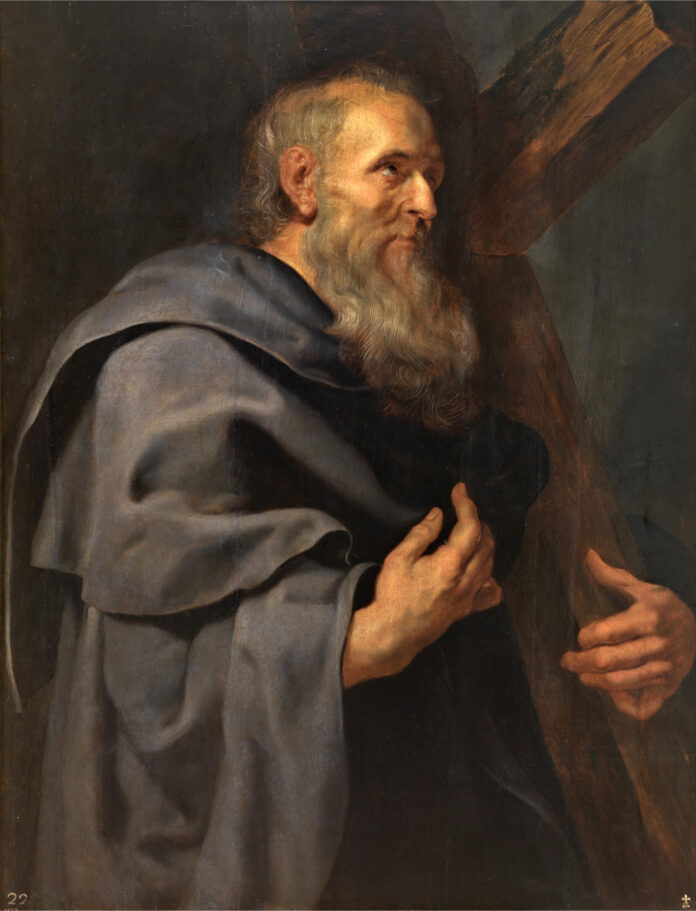
The Apostle Philip was a forerunner of the much more famous Apostle Paul because he went to “outsiders” who would ordinarily not have been invited and drew them to Jesus Christ, ministers say.
Ministers Kevin Fox, Hector Aguilar and Andy Hill say Philip was from Bethsaida, the same Galilean village as the brothers Peter and Andrew, and like them and the other apostles he had no special qualifications.
“The incredible thing about Philip was that he went to people outside of Jerusalem like the Samaritans,” said Fox, minister of Westway Church of Christ in Midland. “He was a man ahead of his time because the Jews and Samaritans were hated rivals.
“In Acts 8, Peter and John rejoice that the Samaritans are coming to the Gospel. Then Philip gets this call to go away and speak to a wealthy man on his way back to Africa.”
Referring to the story in Acts 8:26-40 about Philip’s encounter with and baptism of a eunuch who was the treasurer of Ethiopian Queen Candace, Fox said, “He had this admirable trait of going wherever he was called and speaking to whoever was in front of him.
“Philip laid the groundwork for what Paul was eventually able to do, taking the Gospel to the Gentile world by carrying it to people who were not quite Gentiles but were definitely not accepted as first family Jews.”
Fox noted that after baptizing the Ethiopian, Paul was transported by the Holy Spirit 34 miles north from near Gaza to Azotus, where he began preaching sermons that led him through a series of towns to Caesarea.
The ministers said another important reference to Philip is in John 1:43-46, where Jesus calls Philip to follow him and Philip finds Nathanael, also known as Bartholomew, and said, “We have found him of whom Moses in the Law and also the prophets wrote, Jesus of Nazareth, the son of Joseph.”
“Nathanael said to him, ‘Can anything good come out of Nazareth?’” John 1:46 says. “And Philip said to him, “‘Come and see.’”
Scholars say the eunuch had traveled 1,500 miles to worship at the temple in Jerusalem.
Acts 8:32-33 says he was reading Isaiah 53:7-8 and asked Philip to explain it to him. It says, “Like a sheep he was led to the slaughter and like a lamb before its shearer is silent, so he opened not his mouth. In his humiliation justice was denied him. Who can describe his generation? For his life is taken away from the earth.”
The Rev. Aguilar, pastor of Jesus Connection Church, said Philip preached in Syria, Greece and the region of Phrygia in what is now Asian Turkey. “He was a good friend of Nathanael or Bartholomew and he is often confused with Philip the Evangelist (one of the seven deacons who cared for poor Christians in Jerusalem),” Aguilar said.
“The Apostle Philip is mentioned seven times in the Gospels and once in Acts. I think he was pretty quiet, not shy but just quiet. He had a heart for evangelism and leading others to Christ. He tended to look and study first before he acted, the opposite of what Peter was. He was martyred for his faith like all the other apostles except for John. He was not afraid of martyrdom. He considered it an honor.”
Aguilar said Bethsaida was a small town near the north shore of the Sea of Galilee.
Asked what Jesus looked for in his disciples, the pastor said, “Sincerity and the willingness to do what he was calling them to do.
“None of them had the capability or tools for it. Jesus wasn’t looking for teachers of the Torah or anything like that. He was looking for guys who would totally depend on him and the Holy Spirit.”
The Rev. Hill said Philip is proof that God “doesn’t always call the prepared, but he always prepares the called.
“All the apostles had some quality or skill in the earthly sense that was redeemed for a heavenly purpose and God does the same thing with us with a call that he places in our lives,” said Hill, pastor of the West Texas Cowboy Church. “There is much more than meets the eye going on in the story about Philip and the Ethiopian, who was wealthy. A eunuch would have never been allowed to be a full member of Judaism because Jewish law specified that he must be a whole person to convert.
“It was absolutely a divine appointment because when Philip explained the prophecy, the Ethiopian said, ‘Here is water. Why shouldn’t I be baptized?’
“You can almost hear the pain in his voice because he fully expected Philip to say, ‘No, not for you. You are not a whole person.’ Instead, Philip just took him down and baptized him. Christ came for all. No one has to be on the outside looking in where Christ is concerned.”



